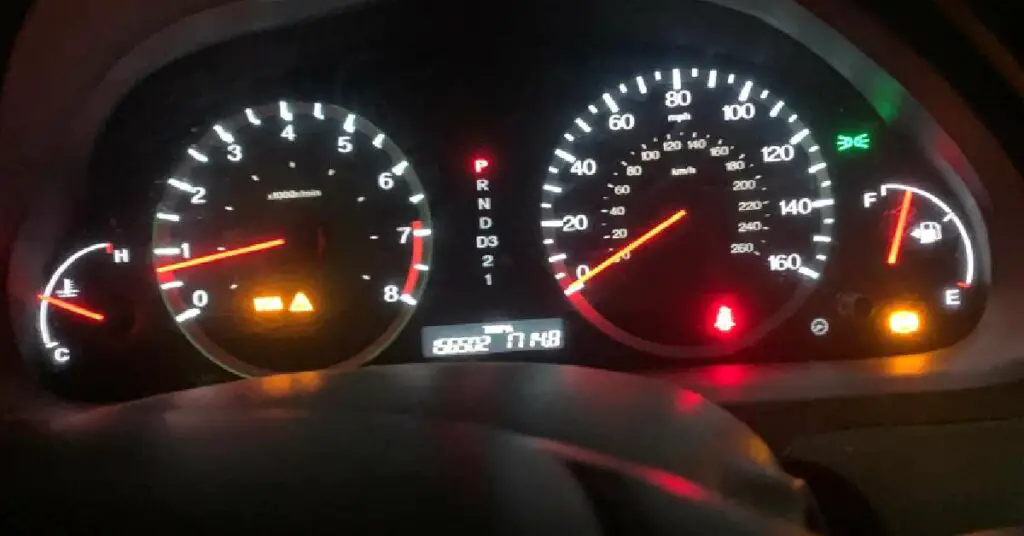
Fellow car enthusiasts and Honda owners, today we’re tackling a head-scratcher that’s been giving us all a run for our money. You guessed it – the notorious 61-23 modulator control unit power source low voltage issue. A problem that can make even the most seasoned DIY mechanics question their sanity. But don’t panic! We’re in this together, and by the end of this post, we’ll have unraveled this mystery and put our Honda cars back on the road to perfection.
ABS and the 61-23 Modulator Control Unit: Getting to Know the Basics
Before we dive into the nitty-gritty, let’s first get a grasp on what the 61-23 modulator control unit actually is. In a nutshell, it’s a crucial component of your Honda’s ABS (Anti-lock Braking System). As you’re probably aware, the ABS is a vital safety feature that helps you maintain control of your vehicle, preventing your wheels from locking up and skidding during hard braking or slippery conditions.
The modulator control unit is essentially the brain behind this critical operation. It processes data from various sensors and manages the hydraulic pressure in your braking system. When everything is running smoothly, you won’t even notice it’s there. However, when there’s a low voltage problem, it can cause a world of trouble.
Recognizing the Telltale Signs of the 61-23 Issue
Picture yourself cruising down the road in your trusty Honda, and suddenly, that dreaded ABS light flickers to life on your dashboard. You might be tempted to brush it off as a fluke or perhaps a cruel joke played by the car gods. But, my friends, this could be the first warning sign that the 61-23 modulator control unit power source low voltage problem is lurking under the hood.
Now, there are other potential reasons for that pesky ABS light to appear, but if you’re driving a Honda and have a bit of mechanical intuition, there’s a good chance it’s the 61-23 issue causing the commotion.
Understanding the Root Causes of the Low Voltage Problem
Alright, it’s time to roll up our sleeves and get down to the heart of the matter. What’s causing this voltage issue in the first place? Well, there are a few primary culprits:
- A Weak Battery: As is the case with many car-related issues, a weak battery can be at the core of the problem, including low voltage in your modulator control unit. If your battery is nearing the end of its life, it might not be providing enough power to keep the system operating efficiently.
- Faulty Wiring or Connections: Wiring is the backbone of your car’s electrical system. If there’s a short or poor connection, it could be depriving the modulator control unit of the voltage it requires to function correctly.
- A Malfunctioning Alternator: The alternator is responsible for keeping your battery charged and powering all the electrical components of your car. If it’s not doing its job, low voltage might be the result.
Diagnosing and Fixing the 61-23 Low Voltage Issue
So, you’ve deduced that the 61-23 modulator control unit power source low voltage issue is the source of your ABS dilemma. What’s next? It’s time to don your mechanic hat and get to work!
- Check the Battery: First and foremost, make sure your battery is in top-notch condition. If it’s more than a few years old or has seen better days, it might be time for a replacement. Check the voltage with a multimeter, and if it’s below 12.4 volts, it’s probably time to invest in a new one.
- Inspect the Wiring and Connections: Grab a flashlight and start investigating. Check the wiring and connectors associated with the modulator control unit and the ABS system. Look for signs of wear, corrosion, or damage. If you spot any issues, address them immediately. A little soldering or some electrical tape might be all you need to restore order.
- Test the Alternator: If your battery is in good shape and the wiring appears solid, the next step is to test the alternator. You can do this with a multimeter or by taking your car to a trusted mechanic. If the alternator is found to be malfunctioning, a replacement or repair may be in order.
- Check the ABS Sensors: Another possibility that could contribute to the 61-23 issue is a faulty ABS sensor. Inspect each wheel’s ABS sensor for signs of damage or corrosion and ensure they are properly connected. A malfunctioning sensor can cause incorrect signals to the modulator control unit, leading to voltage issues.
- Replace the Modulator Control Unit: If all else fails and you’ve ruled out the battery, wiring, alternator, and ABS sensors, it may be time to replace the modulator control unit itself. This can be a more involved process, and unless you’re a seasoned DIY mechanic, you might want to leave this task to the professionals.
Maintenance Tips to Keep the 61-23 Issue at Bay
We’ve all heard the age-old adage that an ounce of prevention is worth a pound of cure, and this rings true when it comes to the 61-23 modulator control unit power source low voltage issue. Here are some maintenance tips to keep your Honda running smoothly and help prevent this problem from rearing its ugly head:
- Regular Battery Checks: Routinely check your battery’s voltage and ensure it’s holding a charge. Also, keep an eye out for signs of wear or corrosion on the terminals, and clean them as necessary.
- Inspect Wiring Periodically: Regularly inspect the wiring related to the ABS system and modulator control unit. Address any issues immediately to prevent more significant problems down the road.
- Keep Your Alternator in Check: Make sure your alternator is functioning correctly by monitoring the voltage it produces. If you notice any fluctuations or inconsistencies, have it checked out by a professional.
- Stay on Top of Regular Maintenance: Regular maintenance is essential for the overall health of your Honda. Make sure to follow the manufacturer’s recommended maintenance schedule and address any issues as they arise.
Conclusion: You’ve Got This!
There you have it, folks! The 61-23 modulator control unit power source low voltage issue may seem like a formidable opponent, but with a little know-how, determination, and elbow grease, you can overcome it and keep your Honda in peak condition.
Remember, the key is to stay calm, be methodical, and work through the potential causes one by one. And if all else fails, don’t hesitate to call in the cavalry (aka your trusty mechanic) for some professional assistance.

As a seasoned mechanic and proud owner of three successful car workshops, I’ve dedicated my life to helping people just like you overcome their everyday automotive challenges. I created this website as a labor of love, with a simple mission: to make car maintenance and repairs more accessible and approachable for the “average joe.”
